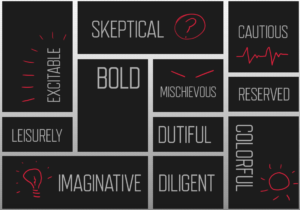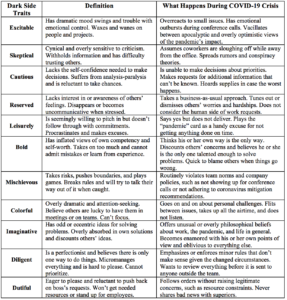
Crises tend to bring out both the best and the worst in people. On one hand, the COVID-19 pandemic has people picking up groceries for their elderly neighbors, sewing masks, and sending hand sanitizer to those in need. At the same time, others are hoarding toilet paper, spreading conspiracy theories on social media, and failing to follow health directives from authorities.
Hardly anyone is going through the normal routine of getting ready for work, commuting to the office, spending the day with colleagues, returning home, and enjoying the evening with family and friends. People are struggling to work from home while simultaneously providing education and day care to their children. Healthcare workers and others deemed essential are working longer hours than ever before, whereas those in the restaurant, bar, entertainment, fitness, hospitality, airline, and cruise industries sit idle. Consultants and gig economy workers have seen most sources of income dry up, and those who are still employed have no idea whether their companies will be in business next year.
The disruptions to our daily routines, uncertainty about finances, concerns about becoming infected or losing loved ones, and isolation are creating unprecedented levels of stress. No one is going to be at his or her best under these circumstances; the COVID-19 pandemic has created a perfect storm for our dark sides to emerge.
Dark-side personality traits were first identified by Robert Hogan, who defined them as counterproductive behavioral tendencies that emerge when people are not actively managing their reputations. Dark-side personality traits emerge during times of high stress and are essentially coping mechanisms people use to manage these situations. Hogan noted that seemingly normal people can blow their tempers, disappear, avoid making decisions, or micromanage others when stressed.
They are also more likely to demonstrate these dysfunctional behaviors at home because people tend to manage their public reputations at work more than they do their reputations with their families. The COVID-19 pandemic has greatly increased the odds that leaders and employees will exhibit the dysfunctional behaviors associated with dark-side personality traits.

A few of us are lucky and do not have any dark-side traits, but research shows most of us have one to three of these dysfunctional characteristics. Those of us who have more of these traits are more likely to see them emerge during the pandemic. What can people do to keep their dark sides in check during these times of high stress? We’ve laid out some ideas to help people better cope with the challenges of the day.
First, know yourself. Be aware of how you react under stress. One way to do this is to share the table with those you trust and then ask them if any of these behaviors describe you lately. A more scientific way to gather this information is to complete the Hogan Development Survey, which provides benchmarking feedback on the 11 dark side personality traits. In either case, knowing your dark side is an important first step in being able to cope with the stresses and strains of the coronavirus pandemic.
Second, use coping strategies:
Take care of yourself every day. People cope with stress better when they get plenty of sleep, exercise regularly, eat nutritious meals, drink only in moderation, meditate, and otherwise take some time out for themselves on a routine basis. Those who are waking up early or staying up late to get work done around their children’s schedules and who are not taking care of themselves are more likely to see their dark sides emerge. You need to take care of yourself and encourage your colleagues and family or housemates to do the same.
Focus on what you can control. Research shows people can tolerate high levels of stress when they feel in control, while even low stress levels can have debilitating effects when people feel they have little control. We cannot control what decisions our governments make or what is happening with the global economy, but we can control the practices we use to avoid getting infected, how we manage our schedules, how we divide our time between work and family activities, how we show up for work, and how we respond to team members. Helping everyone identify what they can control and stay focused on that will enable people to keep their dark-side tendencies in check.
Maintain support networks. Offer support to others, and take solace in others. You might not be able to do in-person visits with friends or extended family members, but you can connect via phone, video conferencing, email, and social media. This is also a good time to reconnect with old friends and clients with whom you have not spoken for some time. Sharing difficulties with others who are willing to lend a sympathetic ear can go a long way toward keeping your stress level in check. Leaders should check in with employees on a regular basis to see how they are doing and if they are staying connected with family and friends.
Remember the Golden Rule. Just as you would want others to cut you some slack, do your best to lower your expectations of other people. They’re going through some tough times too!
This might be the most challenging situation we have faced on a global basis in our lifetimes, but it also provides opportunities for great personal growth. We can either be buffeted by the winds of the coronavirus pandemic or take control of our fate. Experience is the forge of leadership, and by maintaining focus and keeping your dark-side tendencies in check, you will emerge from this crisis even stronger. Your family, friends, team members, and company are counting on it.
*This is a guest blog post authored by Gordon Curphy, PhD, and Dianne Nilsen, PhD, of Curphy Leadership Solutions.